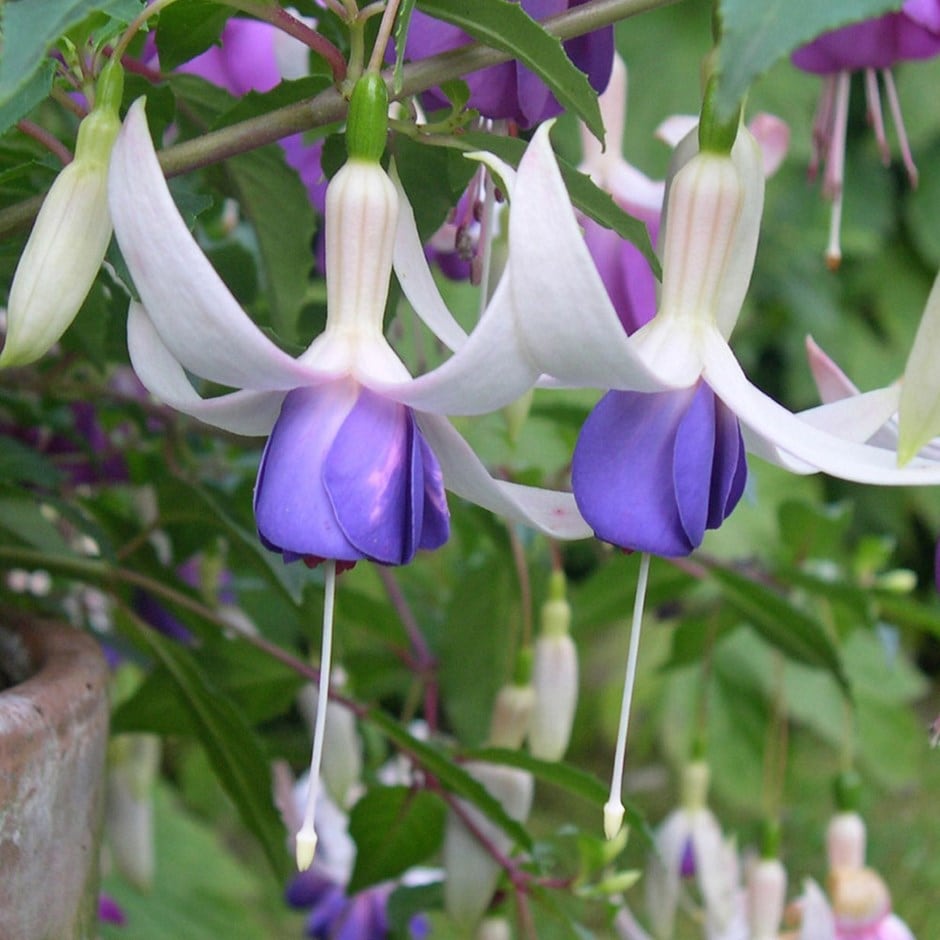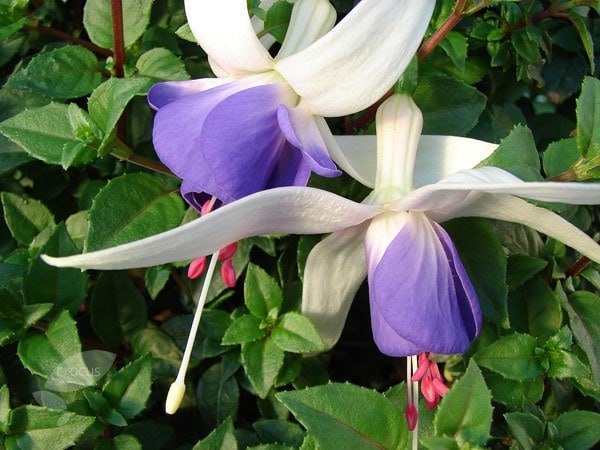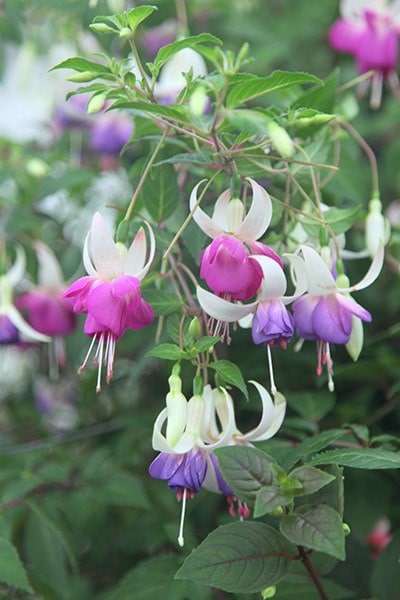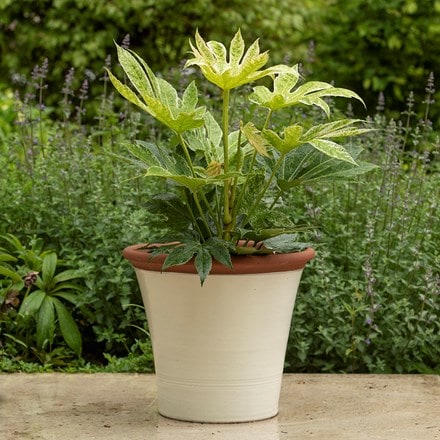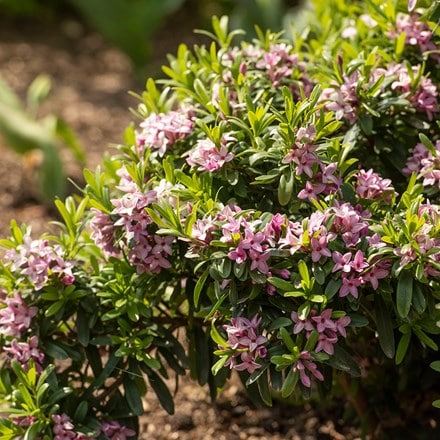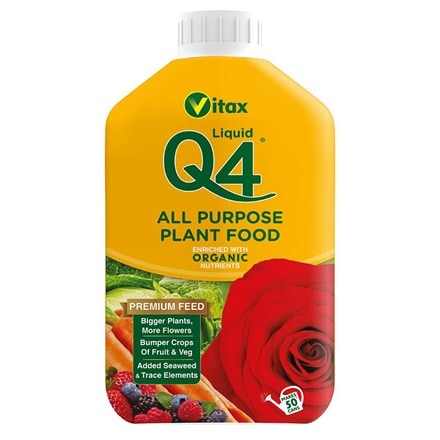Fuchsia 'Delta's Sara'
hardy fuchsia ( syn. Deltas Sarah )
- 9cm pot
- £7.99
- available to order from spring
- 2 + 1 FREE 9cm pots
- £15.98 £5.33 each
- available to order from spring
- 2 litre pot
- £19.99
- available to order from spring
- 3 × 2 litre pots
- £49.99 £16.66 each
- available to order from spring
Delivery options
- Standard £5.99
- Position: full sun or partial shade
- Soil: fertile, moist but well-drained soil, or loam-based compost for containers
- Rate of growth: fast
- Flowering period: June to October
- Hardiness: borderline hardy (may need winter protection)
This hardier-than-most, upright fuchsia produces a striking display of large, semi-double flowers from June to October. White sepals contrast beautifully violet-blue petals, which gradually mature to rich maroon and white tones, creating a long-lasting and evolving colour show.
The dark green, toothed foliage and reddish young stems provide a striking backdrop to the pendant blooms. Fuchsia 'Delta’s Sara' is ideal for borders or large patio containers, where its weather-resistant flowers will attract pollinators throughout summer and early autumn.
Reaching just over 1m in height and spread, it is cold hardy in most southerly UK regions, with foliage dying back in winter before reshooting in spring.
The dark green, toothed foliage and reddish young stems provide a striking backdrop to the pendant blooms. Fuchsia 'Delta’s Sara' is ideal for borders or large patio containers, where its weather-resistant flowers will attract pollinators throughout summer and early autumn.
Reaching just over 1m in height and spread, it is cold hardy in most southerly UK regions, with foliage dying back in winter before reshooting in spring.
For border planting, choose a sunny sheltered spot. Dig a hole twice the size of the rootball, scatter some mycorrhizal fungi on the roots and mix some well-rotted compost into the excavated soil and backfill.
For best results in containers, pot up using a good quality potting compost or or loam-based compost ensuring good drainage.
Fuschias require regular watering to aid establishment and during active growth. Apply a balanced liquid fertiliser each month.
Border plants benefit from mulching in winter for cold temperature protection. Prune in spring to maintain form and to encourage new growth.
Pot grown plants should be overwintered in a sheltered or frost-free spot, while those growing in borders will benefit from winter protection such as horticultural fleece.
For best results in containers, pot up using a good quality potting compost or or loam-based compost ensuring good drainage.
Fuschias require regular watering to aid establishment and during active growth. Apply a balanced liquid fertiliser each month.
Border plants benefit from mulching in winter for cold temperature protection. Prune in spring to maintain form and to encourage new growth.
Pot grown plants should be overwintered in a sheltered or frost-free spot, while those growing in borders will benefit from winter protection such as horticultural fleece.
- Humans/Pets: Fruit are ornamental - not to be eaten
Goes well with
Daphne × transatlantica Pink Fragrance ('Blapink') (PBR)
1.5 litre pot
£34.99
In stock (shipped within 2-3 working days)
